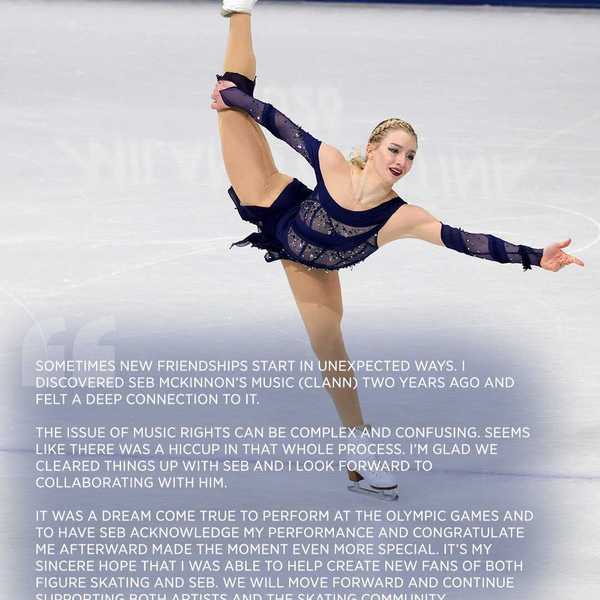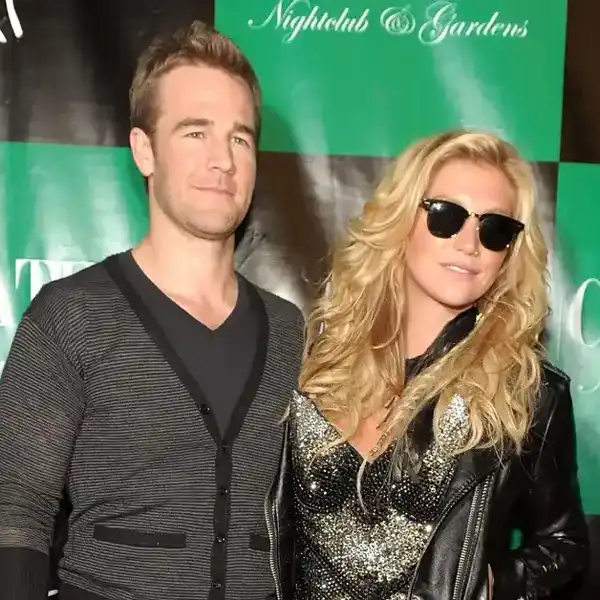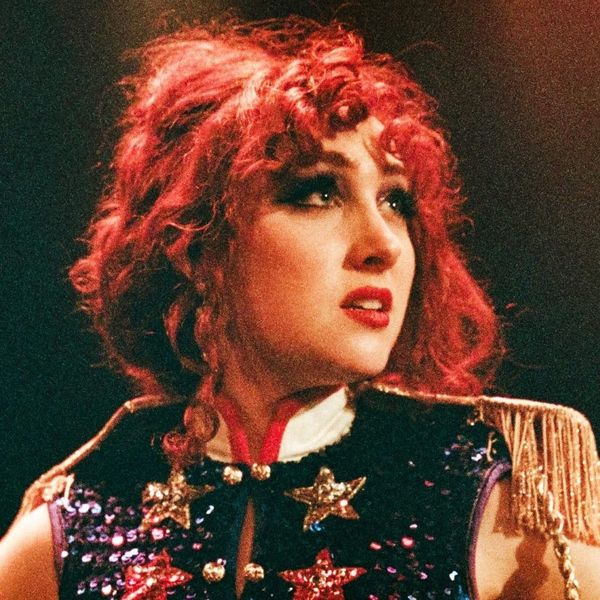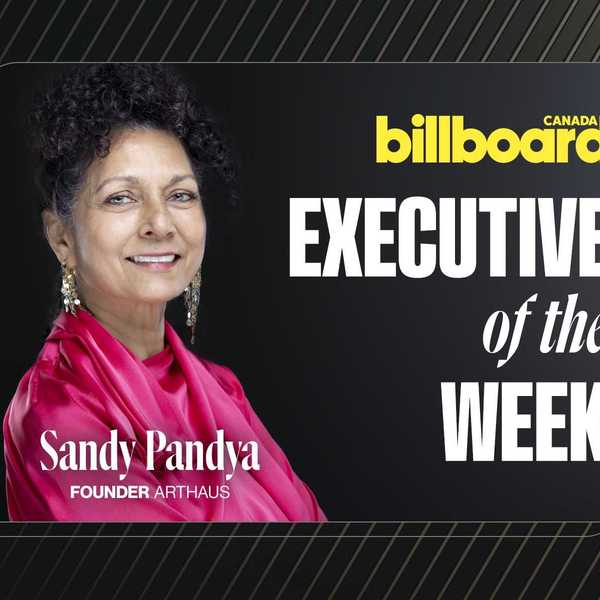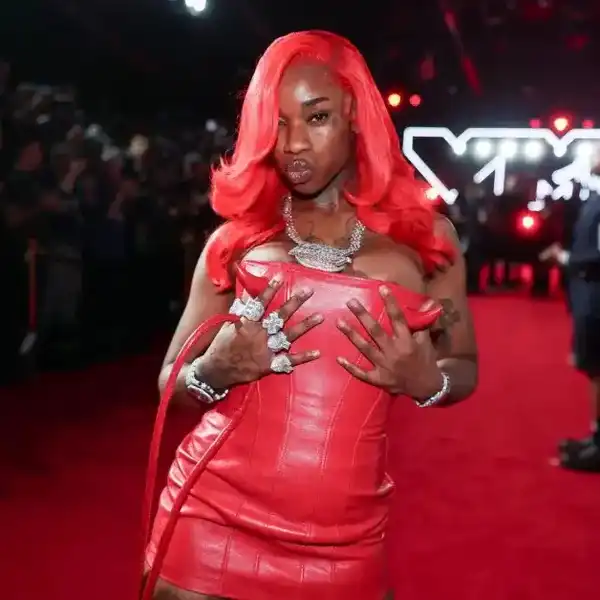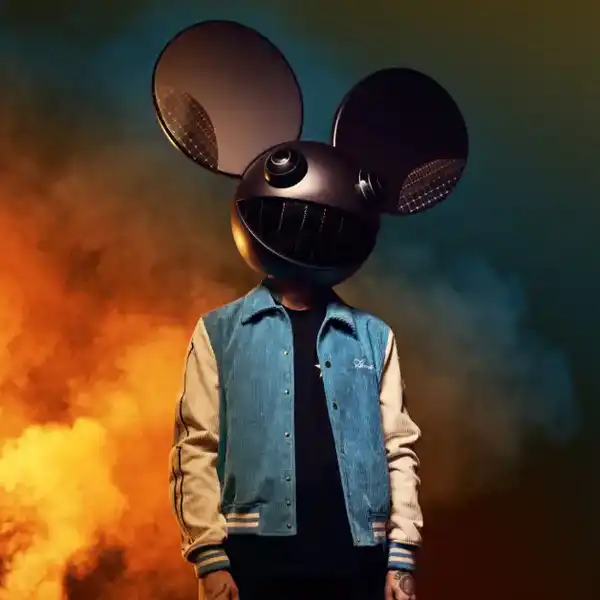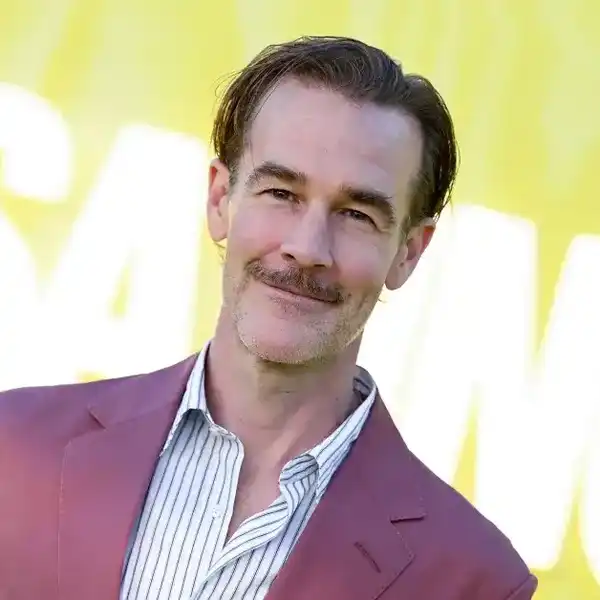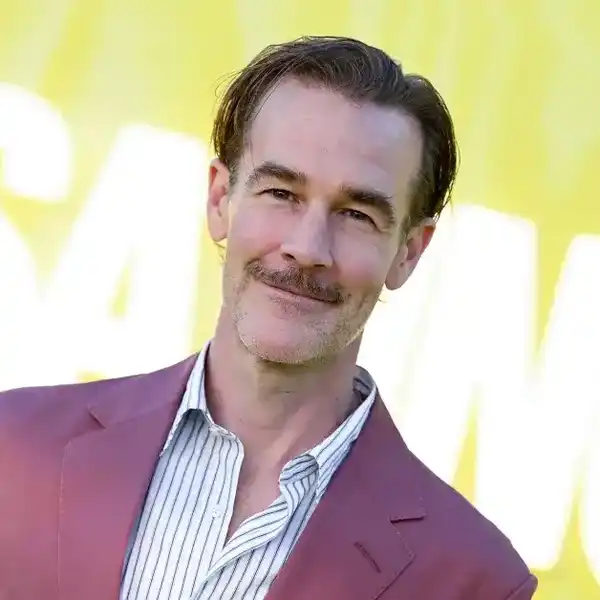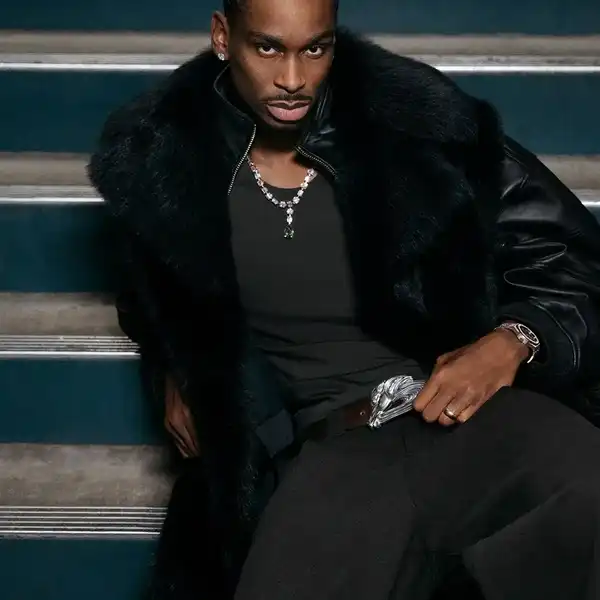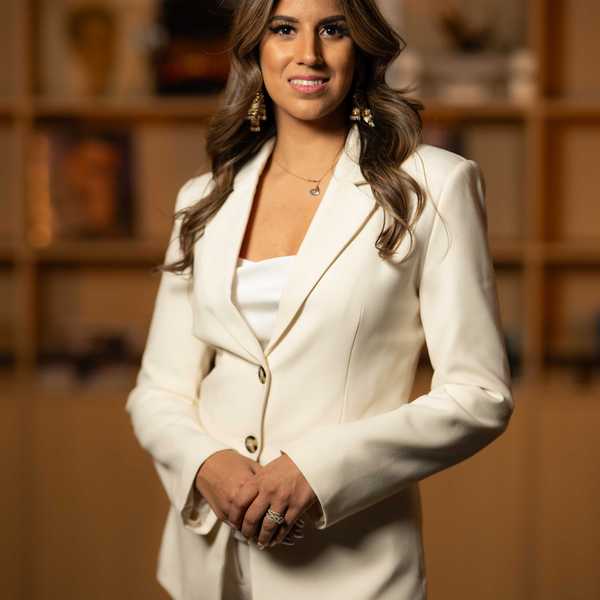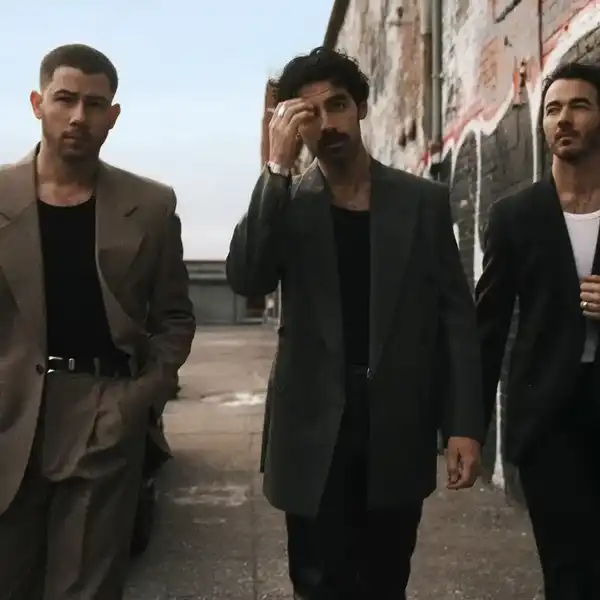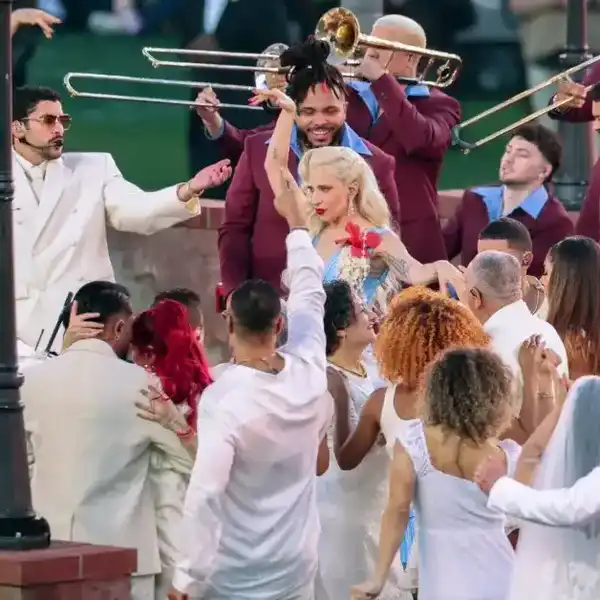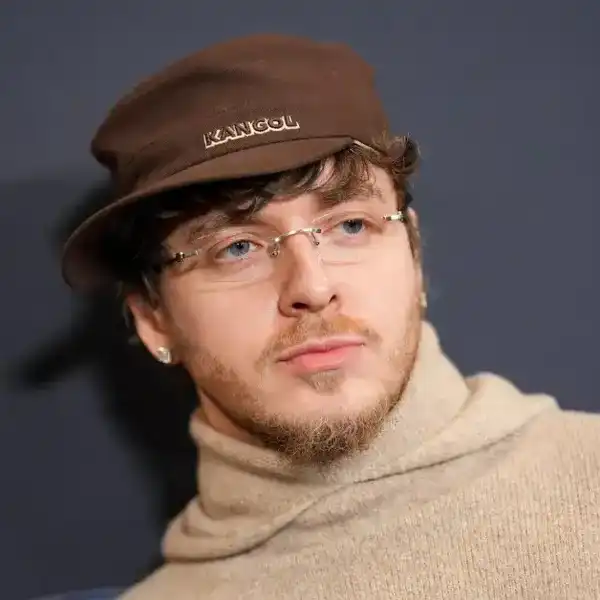Will Butler on Writing the Tony-Nominated Music for ‘Stereophonic’: ‘It Was Like a Thousand-Piece Puzzle With 200 Pieces Missing’
The former Arcade Fire member has two nominations for his stunning songs, written for a fictional (but very believable) rock band onstage.

The cast of "Stereophonic"
Will Butler’s first meeting with playwright David Adjmi was fairly open-ended: a friend had told Butler that Adjmi — a fan of Arcade Fire, the band Butler was in at the time — was working on a play about a band and that Butler could “write the music or just consult or whatever.”
But from their first sit-down at a diner near New York’s theatre district, Adjmi’s vision was “instantly recognizable” to Butler: “Like, oh, it’s a demo — it’s like a transcendental thing that they can never recapture. You have things falling apart because the headphones sound bad, you have people yelling at each other over music but it’s because of how their dad treated them,” he recalls with a laugh.
A decade after Butler first sent his song demos to Adjmi, their collaboration, Stereophonic, is the most Tony-nominated production not just of 2024, but of all time. A true musical-play hybrid, Stereophonic immerses the audience in a fictional band’s recording process in 1976, as they make the pivotal album that will launch them to superstardom. Snippets of takes along with stunning full songs punctuate the band’s alternately hilarious and gutting drama in and outside the booth, playing out over around three intimate hours. Incredibly, the actors who sing and play their own instruments as a very credible rock band onstage were at best proficient before Stereophonic rehearsals began.
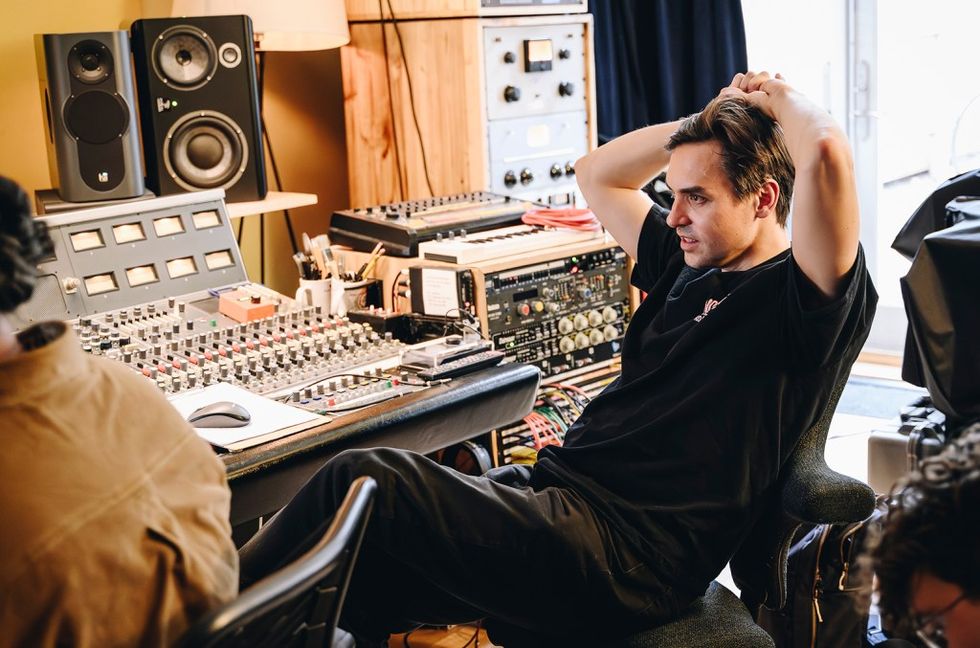
Though the fictional band and narrative have drawn comparisons to Fleetwood Mac and its storied process of making its classic 1977 Rumours album, Stereophonic (which was just extended through January 5, 2025 at the Golden Theatre) never feels like a retread of rock history. That’s a testament to Adjmi’s writing and the cast’s talent and chemistry — but also in large part to Butler’s songs, which blend a genuine ‘70s rock sound with his own unique sensibility into songs that sound like anything but pastiche. (The original cast album, including songs both in the show and heard only partially in it, is out now on Sony Masterworks Broadway.)
Butler, who parted ways with Arcade Fire in late 2021 and now performs in Will Butler + Sister Squares, is himself up for two Tony Awards on June 16 — for best original score and best orchestrations — and is finding fertile new creative ground (and demand for his composing skills) in the theater world. He spoke to Billboard about the singular “jigsaw puzzle” of Stereophonic and creating a believable band onstage.
Did David give you any specific guidelines for what he wanted the music in Stereophonic to be like — or did you have total free rein to write some songs and see how they turned out?
Total free rein. And then once the script existed, it was like… a thousand-piece jigsaw puzzle with 200 pieces missing [Laughs], and figuring out fitting those pieces in. There were a number of songs, like this one on the album called “In Your Arms,” that David really loved and that felt like the band, but didn’t make sense in any of the scenes. We’re showing these moments of music — and they all have to have a purpose, they all have to emerge from the characters at the right time and in the right way, and it still has to feel a little bit mystical.
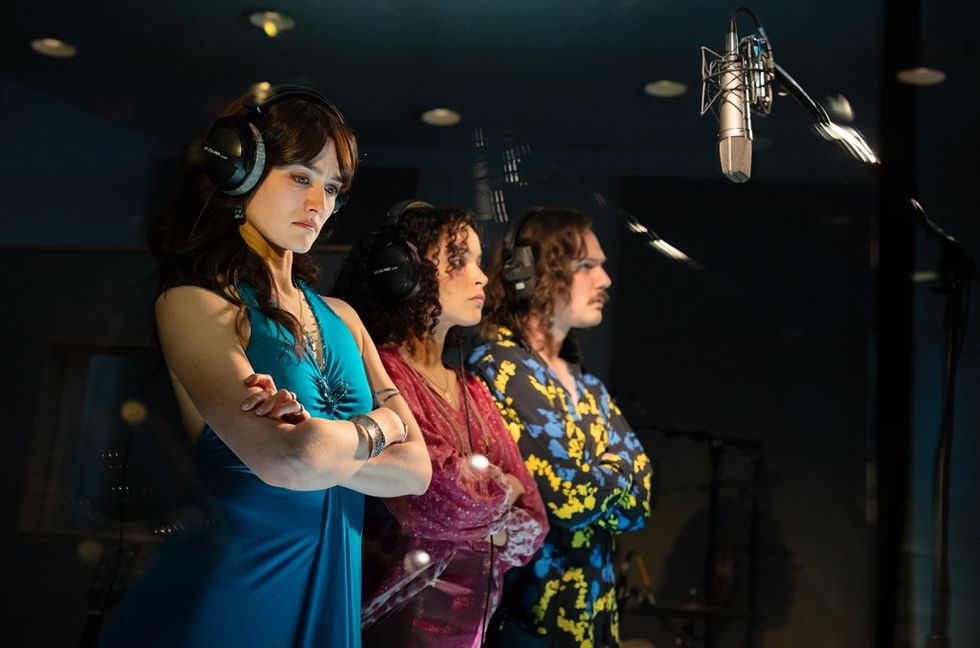
Your music is so evocative of great bands of the ‘70s yet never feels like it’s copying that style; it really feels timeless. How did you arrive at that kind of balance?
I mean, I kind of lucked into not really knowing the great rock and great pop groups of that period of the ‘70s. Like, I just didn’t really know Tom Petty besides the hits, I didn’t really know Fleetwood Mac, Led Zeppelin, early Bruce Springsteen — I didn’t really know all these touchstones for David. But I knew the stuff around it and I knew where it was leading. Like, Bruce Springsteen wasn’t listening to Bruce Springsteen; Bruce Springsteen grew up listening to ‘50s groups and then in the ‘70s he was going to Suicide shows in like, tiny basement clubs in New York. And I was like, “Oh, well, I know ‘50s girl groups, and I know Wall of Sound and I know Suicide. So instead of copying Bruce Springsteen, why don’t I just pretend like I’m Bruce Springsteen, and listen to Suicide, and listen to girl groups and like, see what happens?” [Laughs.]
That’s crazy! “Masquerade” especially feels like it could be a perfect Fleetwood Mac song…
I get it, because there’s this speed up in the second half, but I was kind of just ripping off an Arcade Fire move. Like, I thought people were gonna call me out for ripping off Arcade Fire.
Even with the direct influences being so loose, were there certain sonic elements that you wanted all the songs to share?
I knew I wanted really tight, beautiful harmonies, especially for [singer] Diana and [singer and guitarist] Peter. When you hear two people in harmony you’re like, “Oh, this is why they’re together, this is why this is compelling.” And then when you add a third voice to it you realize why they’re a band just intrinsically. There’s so many different kinds of ‘70s harmony — there’s the Eagles, The Byrds, Richard and Linda Hamilton, Fleetwood Mac — but they all have this beautiful harmony, particularly if you’re in California [where Stereophonic takes place]. And then Peter is a guitar player, so there had to be some guitar riffs in the show.
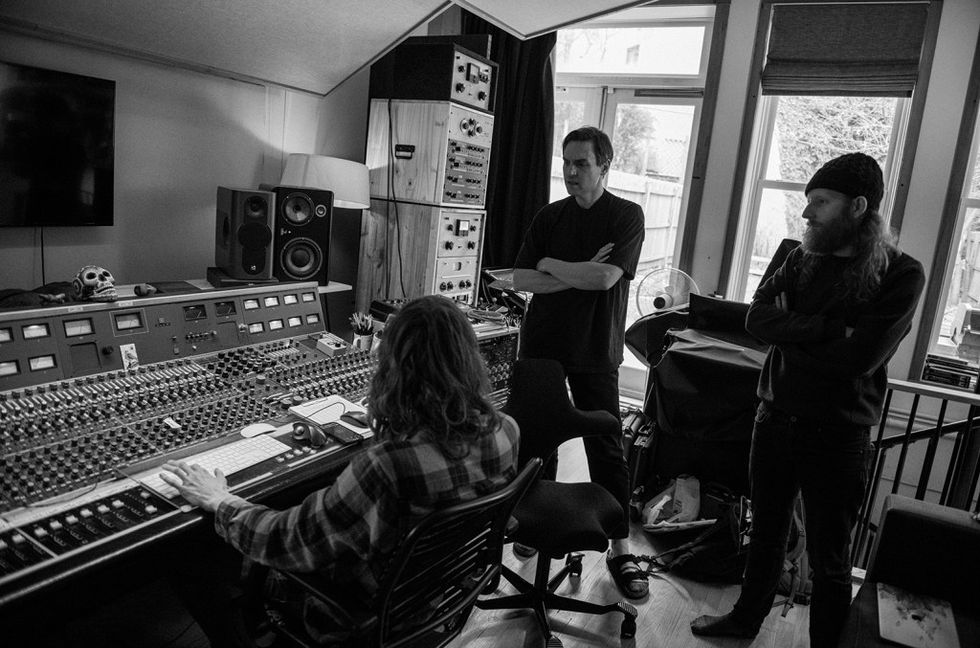
How involved were you in the casting process?
I was there for the whole ride. And wow, I truly hated being behind the table and judging them — what a horrible thing for a musician to do. We wanted to cast people that were expert musicians and amazing actors and were right for the roles, but I was very cavalier about the musician aspect — where I was like, anyone can be in a band, we don’t need technical wizards, they just need to be musical and have some sort of charisma and it’ll work out. We did know we needed a drummer, we knew we couldn’t teach drums in a short amount of time. But everyone else we just wanted to have a baseline [level of ability]. They needed to have the right personality, to be able to learn music, and they needed to be able to dance a little bit. And it was a little heavier lift than I thought, but in the end my naïve self was right.
Another part of it is that [actors] Tom [Pecinka] and Juliana [Canfield] and Sarah [Pidgeon] are just such beautiful singers — they sang so well together day one, like unmannered, beautiful, idiosyncratic and they blended perfectly. That was incredibly moving. When they were just running through the songs, there was such deep emotion there that I was like, okay, we’ll be fine.
In theater, it can be so obvious when someone is fake-playing an instrument — and these actors aren’t just proficient players, they totally embody what someone playing their instrument would be like. What was it like to witness them evolving like that?
It was really wild. Sarah Pidgeon, who doesn’t play an instrument — I mean, she plays a tambourine, she plays it great — but even standing at a microphone took her about eight weeks to feel. It was really interesting to watch someone learn how to stand at a microphone in a way that just feels natural. It feels like she’s supposed to be there and supposed to be singing. Tom Pecinka didn’t have a ton of guitar, but when he first put on a guitar in the audition room, I was like, “Oh, I actually can’t tell if he’s a good guitar player or a bad guitar player.” He looks the part, and his physicality was so natural.
A lot of it is also really great directing, the building of the band and the orchestrations. We spent a lot of time in practice rooms, me and Justin Craig, the music director, building a vibe as much as anything else. I had [the cast] open for a show of mine in the fall, and I think the physicality of playing one club show kind of gave them a sense of how powerful they were.
We hear many little snippets of songs before we hear full versions, and we don’t hear full versions of all of them. How did you and David decide how that would play out?
Honestly, we didn’t talk about it that much, because it just felt so naturally right to both of us. It just felt to me like the process of making a record — someone plays a demo off a cassette, and you go work on it, and things fall apart, and finally you start to lose your mind and you’re cutting things that are good, and then you’re dong the final details and everyone’s losing their minds. The arc of the play honestly just felt so accurate to my life.
Some songs in the show, like “Bright,” we hear multiple different versions of as they’re being worked on. How did that writing process — creating partial songs — work?
The hard thing is just writing a really good song. When I was working on Everything Now with Arcade Fire, Thomas Bangalter of Daft Punk was producing it, and he’s like a philosopher. He was saying how a great song can support infinite cover versions; like, a truly great song, the production is not the thing. And there’s nothing wrong with the production being the thing — but if it’s a great song, you can produce it 1000 different ways and you can have 100 different cover versions, and they all speak in some sense. So I was like, “Okay, I’ve just got to write this song, and if it’s good enough, then we can do it 100 different ways and it’ll be compelling.”
Having had this experience, are you interested in doing more theater work?
Yeah, me and David Adjmi are working on a more traditional musical, or I guess more of a rock opera or something. It’s early days, but it would be silly for us not to do something else — and I think it’d be really fun to make it. And I’m good friends with Lucas Hnath, who is such a brilliant playwright — we’ll slowly work on a couple things.
One of my own takeaways from the play was how, as a fan, it can be easy to romanticize and mythologize the internal drama of a famous band — but really, a band is made up of humans who are dealing with very human-sized joys and tragedies. As someone who has been in a much-adored big band and has probably had that projected on them as well, what is it like seeing how Stereophonic plays out?
I think there’s a folk sense that relationships predate art, where it’s like, “Oh, they had this stormy relationship, and they wrote a song about it.” And the play is really showing that it’s all just one mess — if you’re creating, if you’re collaborating with someone, the relationship is the art and you’re making it with the person and it’s just a human mess. It’s all fundamentally emerging from the same place, and oftentimes, that place is quite broken. I appreciate just how true [the show] feels. It just shows the tangled web of trying to make art with with four of your friends, which is really powerful.
I was in a band with my brother and his wife, and now I’m in a band with my own wife and her sister. So I’ve been in bands with these long, deep relationships. I consulted with David a bit on the technical side, but I didn’t tell him what it was like being in a band with family — and because he’s so observant or maybe just that he is a very good playwright, the humanity of it is very accurate to me. And it’s a credit to the humanity of the actors, too, because it’s one thing to read the words and it’s another thing to like, make them happen in real life and put real flesh and bones on it.


